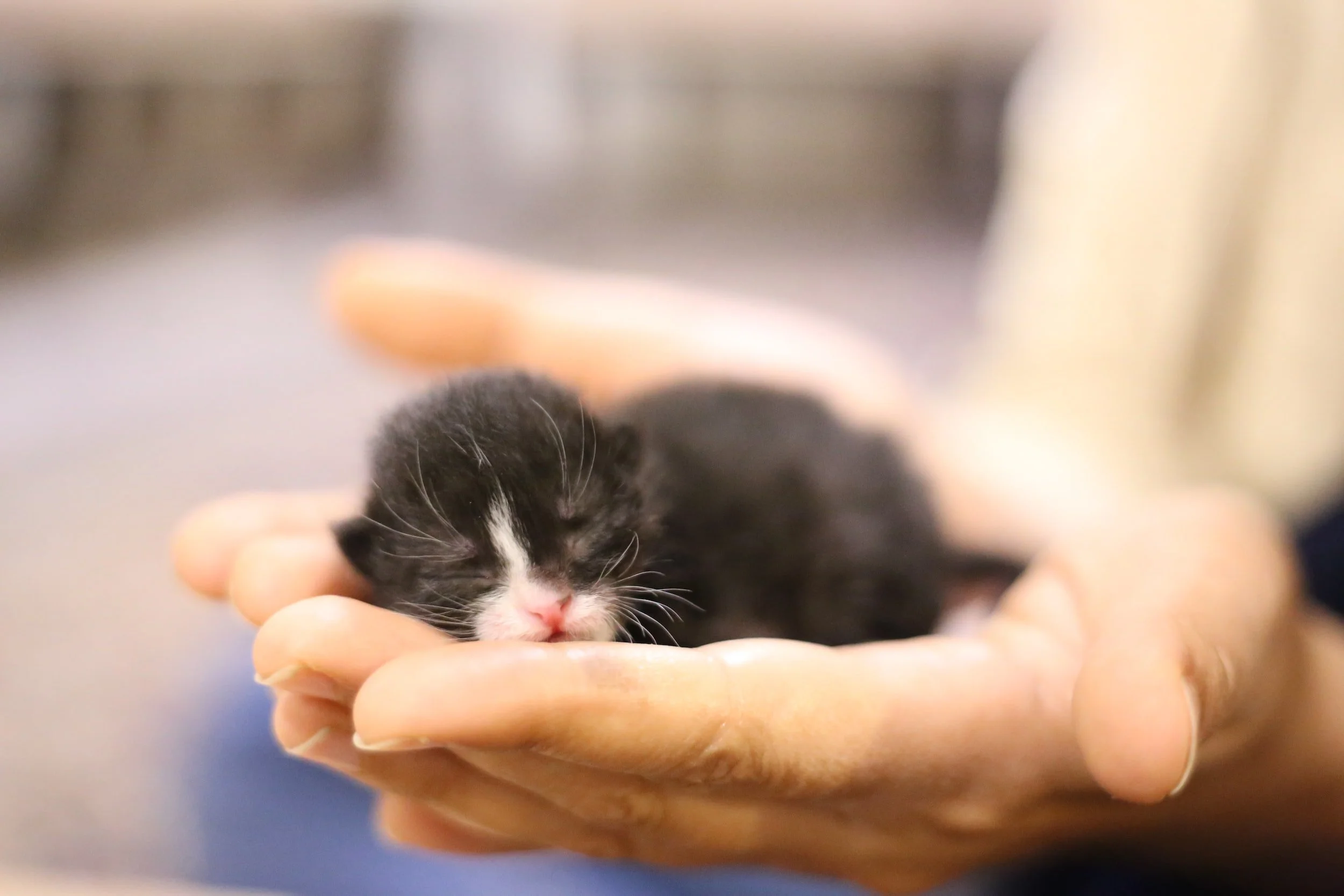Kittens are cute, playful, active and loving pets. Their physical, social and cognitive skills develop throughout different stages of their life. Understanding these stages gives us an insight into what to expect. It also allows us to offer the right care and support so your kitten can grow into a happy, healthy, well-mannered cat.
0-2 weeks
Kittens in the newborn stage rely solely on their mother and will regularly drink their mothers milk as their only source of nutrition.
Your kitten will spend most of their time sleeping and drinking.
Their eyes and ears haven’t opened yet and they haven’t developed a sense of smell.
2-6 weeks
Your kitten’s teeth start coming through. The blue eyes that they were born with can start to change towards their true eye colour.
Their senses are developing. Their eyes and ears begin to open so they can see and hear. They will start to become aware of their surroundings and will begin responding to sound.
They will start to interact with their mother and litter mates, take their first steps, groom themselves, mew and even purr! Important social skills develop over time with people and during play with their siblings and mother.
At around 5 weeks, drinking water and some soft kitten food can be introduced, as well as the litter box.
6-12 weeks
Your kitten will need their first health check at the vets to get their vaccinations and parasite control in order. It’s also a great time to discuss desexing and microchipping.
By the time your kitten reaches 8 weeks they should be eating mostly solids and regular small meals each day.
At 10-12 weeks kittens are ready to go home to their new owners. They will become increasingly social and playful enjoying to run, stalk, pounce and chase.
At this stage litter and other obedience training will continue in their new home.
3-6 months
At around 3 months kittens start teething. Kittens do not engage in chewing (like puppies) as it does not typically cause them much pain.
Your kitten will start to explore and test the boundaries with their owners and other animals. It’s important to develop a positive handling, socialisation and training program to establish good manners.
Once your kitten has completed their vaccinations at around 16 weeks they will be ready to step out into the world. Your vet will also discuss your kitten’s long term vaccination program, which generally includes an annual booster.
6-12 months
By around 6 months of age, all your kitten’s teeth should have fallen out and adult teeth should have grown in.
Your kitten will generally reach sexual maturity between 6-12 months of age. Desexing your pet is common between 4-6 months of age before they develop any unwanted behaviours.
Kittens at this stage need a great deal of stimulation and activity to keep their boredom at bay. To prevent misbehaving, ensure your kitten has appropriate cat toys and plenty of opportunity for play and exercise. Provide a scratching pole or mat to help prevent your kitten from scratching your furniture.
12-24 months
By the time your kitten reaches 12 months, they are considered an adult, but they may continue to grow further.
When kittens become adults, it’s time to transition their diet from kitten food to adult cat food to ensure they have a complete and balanced diet. Speak to one of our vets about the best diet for your pet’s life stage.
Most cats reach emotional maturity between 12-24 months and will establish a temperament and personality that will remain for their adulthood. However, you can still expect some kitten energy and cheekiness, depending on the breed that can last for several more years.
Understanding the kitten development stages can give you insight into what to expect as they grow so you can provide the right care for your bundle of joy throughout their lifetime. If you have any questions about your kitten, please call us on 03 8784 4444.







